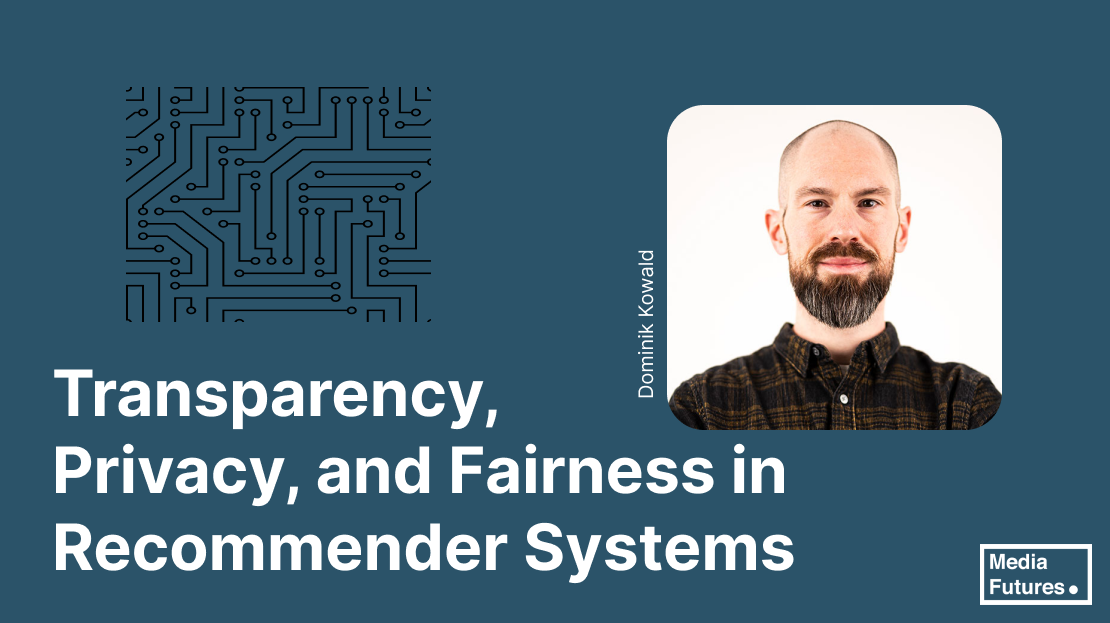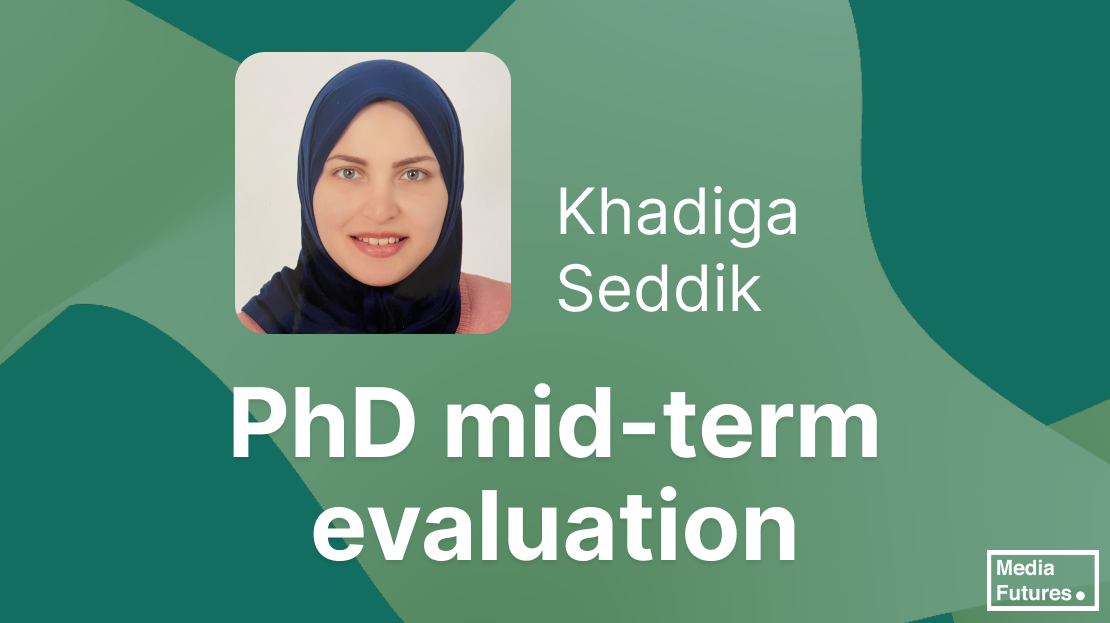WP2 User Modeling, Personalisation & Engagement
-
-

Seminar: User-centered Investigation of Popularity Bias in Recommender Systems
OnlineABSTRACT: Recommendation and ranking systems are known to suffer from popularity bias; the tendency of the algorithm to favor a few popular items while under-representing the majority of other items. Prior research has examined various approaches for mitigating popularity bias and enhancing the recommendation of long-tail, less popular, items. The effectiveness of these approaches is often assessed using different metrics to evaluate the extent to which over-concentration on popular items is reduced. However, not much attention has been given to the user-centered evaluation of this bias; how different users with different levels of interest towards popular items (e.g., niche vs blockbuster-focused users) are affected by such algorithms. In this talk, I first give an overview of the popularity bias problem in recommender systems. Then, I show the limitations of the existing metrics to evaluate popularity bias mitigation when we want to assess these algorithms from the users’ perspective and I propose a new metric that can address these limitations. In addition, I present an effective approach that mitigates popularity bias from the user-centered point of view. Finally, I investigate several state-of-the-art approaches proposed in recent years to mitigate popularity bias and evaluate their performances using the existing metrics and also from the users’ perspective. Using two publicly available datasets, I show that many of the existing popularity bias mitigation techniques ignore the users' tolerance towards popular items. The proposed user-centered method, on the other hand, can tackle popularity bias effectively for different users while also improving the existing metrics.
-
-

Seminar: Computational Psychology in Recommender Systems, Marko Tkalčič, University of Primorska (Slovenia).
OnlineABSTRACT: Recommender systems are systems that help users in decision-making situations where there is an abundance of choices. We can find them in our everyday lives, for example in online shops. State-of-the-art research in recommender systems has shown the benefits of behavioural modeling. Behavioural modeling means that we use past ratings, purchases, clicks etc. to model the user preferences. However, behavioural modeling is not able to capture certain aspects of the user preferences. In this talk I will show how the usage of complementary research in computational psychology, such as detection of personality and emotions, can benefit recommender systems.
-
-
-
-

MediaFutures Seminar: Translating Educational Data into Meaningful Practices: Insights from the field of Learning Analytics. Mohammad Khalil.
OnlineMohammad Khalil, senior researcher at UiB Centre for the Science of Learning & Technology (SLATE), will give a seminar on 25 November, at 12:00. TITLE: Translating Educational Data into Meaningful Practices: Insights from the field of Learning AnalyticsWHEN: Thursday 25 November, 12:00-13:00WHERE: https://uib.zoom.us/j/63125529816?pwd=OTc0MStQYUczTkEzTXVRZTlBYUpyQT09Meeting ID: 631 2552 9816Password: 8U0vAVAy ABSTRACT: Since the last decade, higher education […]
-
-

MediaFutures Seminar: Detecting Fake News by Using Weakly Supervised Learning. Assoc. Prof. Özlem Özgöbek
Dr. Özlem Özgöbek, Associate Professor at NTNU, Norway will give a seminar on 17 March, at 13:00. TITLE: Detecting Fake News by Using Weakly Supervised LearningWHEN: Thursday 17 March, 13:00-14:00WHERE: Zoom - https://uib.zoom.us/j/64607939290?pwd=cStOdG90YWRjSW02RmN6TjAxakQwZz09 Meeting ID: 646 0793 9290 Password: m9hyue9C ABSTRACT: Spread and existence of fake news has been amplified by the advancements in internet and […]
-
-

MediaFutures Seminar: Fairness—Are algorithms a burden or a solution? Dr. Christine Bauer, Assistant Professor at Utrecht University
Dr. Christine Bauer, Assistant Professor at Utrecht University, will give a seminar on 21 April, at 13:00. TITLE: Fairness—Are algorithms a burden or a solution?WHEN: Thursday 21 April, 13:00-14:00WHERE: Zoom - https://uib.zoom.us/j/66369080035?pwd=MDFzdmV6TUdCVVZlZnhsNWc1eHlMUT09 Meeting ID: 663 6908 0035 Password: F9fN181n ABSTRACT: Recommender systems play an important role in everyday life. These systems assist users in choosing products […]
-
-
 Featured
FeaturedMediaFutures Seminar: Computing Biases in Recommender Systems with Marko Tkalčič, University of Primorska
Marko Tkalčič from the University of Primorska in Koper, Slovenia will give a seminar on April 14th. TITLE: Computational Psychology in Recommender Systems WHEN: 14 April, 13:30 - 14:1 ABSTRACT: Recommender systems are systems that help users in decision-making situations where there is an abundance of choices. We can find them in our everyday lives, […]
-
-

News personalization with “Curate”
MediaFutures Media Futures HQ, 3rd floor, BergenMediaFutures invites to a seminar on news personalization with Schibsted in MediaFutures headquarter, MCB, 3rd floor. The seminar will also be streamed. The Curate project has been created to enable Schibsted media outlets to craft an optimal content selection for each individual user, delivering content tailored precisely to their preferences, in the appropriate format, location, […]
-
-

Transparency, Privacy, and Fairness in Recommender Systems
MediaFutures Media Futures HQ, 3rd floor, BergenMediaFutures has invited Dipl.Ing. Dr.techn. Dominik Kowald from Graz, Austria to talk about transparency, privacy and fairness in recommender systems. He is research area manager in Fair AI at the Know-Center and senior researcher and lecturer – ISDS (TU Graz). Recommender systems have become a pervasive part of our daily online experience by analyzing past usage […]
-
-

Mid-term evaluation of PhD candidate Bilal Mahmood
SFI MediaFutures, MCBOn Thursday, April 3rd, PhD candidate Bilal Mahmood will have his mid-term evaluation. Main supervisor: Mehdi Elahi Co-Supervisor: Samia Touileb External Evaluator: Sole Pera
-

Mid-term evaluation of PhD candidate Jia-Hua Jeng
SFI MediaFutures, MCBOn Friday, April 4, PhD candidate Jia-Hua Jeng will have his mid-term evaluation. Main supervisor: Christoph Trattner Co-Supervisors: Erik Knudsen, Alain Starke External Evaluator: Sole Pera
-

Mid-term evaluation of PhD candidate Khadiga Seddik
SFI MediaFutures, MCBOn Friday, April 4th, PhD candidate Khadiga Seddik will have her mid-term evaluation. Main supervisor: Erik Knudsen Co-Supervisor: Damian Trilling, Alain Starke (Step-in) External Evaluator: Sole Pera Title: The Influence of News Recommender technology on Shaping Selective Exposure and Sharing. Abstract: Despite the benefits the news recommenders provide, overly personalized news recommendations and too much […]

